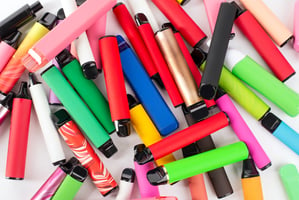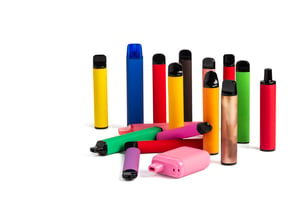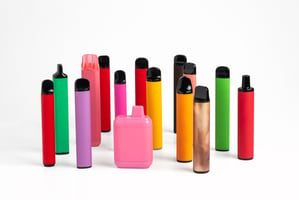Introduction: Preparing for Regulatory Change in the Vape Industry
UK Government announces ban on disposable vapes
Nicotine
.webp)
Jan 30, 2024 | Published by Paul Hardman
Nicotine
On January 29, 2024, Prime Minister Rishi Sunak announced that disposable vapes would be banned in the UK as part of the Government’s plan to tackle the rise in youth vaping. The Government may use powers already in place under the Environmental Protection Act to exercise the ban, which is expected at the end of 2024 or in early 2025. Here, Paul Hardman, Managing Consultant of Chemistry at Broughton, shares his thoughts on the announcement.
Why act now?
The new measures come as the Government responds to a recent consultation on smoking and vaping, which, it says, indicated “overwhelming support” for a ban on disposables.
According to Government figures, the number of children using vapes in the past three years has tripled, with around 9 per cent of 11- to 15-year-olds using them. The Government reports that disposable vapes have been “a driving force behind the alarming rise in youth vaping, with the proportion of 11- to 17-year-old vapers using disposables increasing almost ninefold in the last two years.”
Any legislation taken forward will allow for an implementation period of at least six months, which takes into consideration concerns that industry will require time to adapt.
Analysing the measures
Alongside the ban on disposable vapes, the Government will bring in new powers to restrict vape flavours, introduce plain packaging, and change how vapes are displayed. To crack down on underage sales, new fines will be introduced for shops in England and Wales that sell vapes illegally to children. A further measure will prohibit the sale of tobacco products to anyone born on or after January 1, 2009, although this will not apply to the sale of vapes.
These are all sensible measures to tackle the rise in youth vaping, but more detail is needed to ensure they are implemented effectively. For example, it is unclear what the plain packaging requirements are at this stage and how manufacturers can market their products and remain compliant. Similarly, what flavours are now restricted? What constitutes a flavour that’s marketed specifically at children? Is it the flavour or the marketing, or both, that will be subject to increased regulation?
Under the measure introducing new fines, Trading Standards officers will be empowered to “act on the spot” to tackle underage tobacco and vape sales, building to a maximum £2,500 fine that local authorities can impose. New fines are a step in the right direction, but the Government must ensure these fines are high enough to deter illegal sales and repeat offenders.
What’s not included?
As part of its smokefree vision, “vaping alternatives” such as nicotine pouches will be outlawed to children. We agree with the age restriction and the intention to bring forward separate regulations that will extend restrictions on pouches. Many in the industry advocate for nicotine strength caps and a sensible approach to flavours and visual advertising for nicotine pouches to minimise appeal to children — restrictions that should be in place for all consumer nicotine products. If these measures are not introduced, there is a risk that nicotine pouches could fall down the same traps as disposable vapes did with regard to youth use.
Broughton is modifying its compliance framework as new regulations develop, to ensure that its nicotine consulting service complies with the latest guidance.


